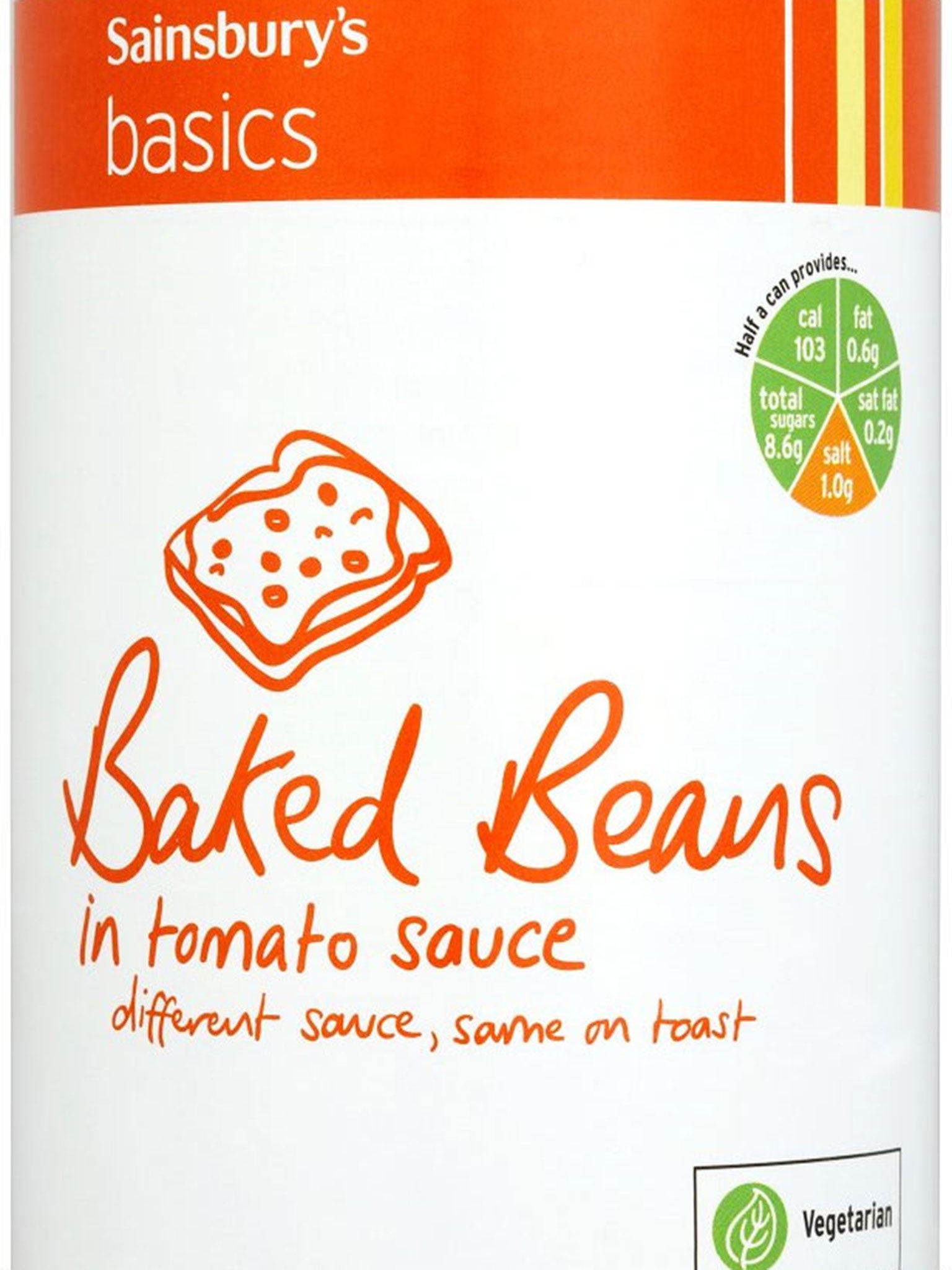Sainsbury's Basics range has cornered the market in self-deprecation
But the supermarket isn't the only brand to keep it simple. Nell Frizzell explores the art of understated advertising

Advertising usually tells us that we're worth it, that we were spoiling ourselves, that we're lovin' it. Occasionally, however, a brand comes along that knocks the whole thing on the head. Suddenly, instead of the lucky ones, we're all just basic bitches. A recent post for the Cambridge student site The Tab celebrated the "endearingly low self-esteem" of Sainsbury's Basics range. From trifle that's "less fruity" to pitta that's "a little bit smaller", bottled water that's "definitely not from the tap", to lasagna that's "a little less golden", Sainsbury's Basics have used their packaging to make the joke before you do; this isn't great but, hey, it is cheap.
Of course, the Great British wheeze of self-deprecating salesmanship is not new. Back in 1994, advertising team Liz Whiston and Dave Shelton created for Ronseal one of the best advertising slogans since we all went to work on an egg. "It does exactly what it says on the tin" wasn't just copywriting – it was the birth of a national catchphrase.
"The campaign celebrated the normal and the ordinary, as opposed to huge budgets and celebrity faces," says Whiston. "The client was absolutely lovely, but very stubborn. He just kept saying, 'That's not me'. So we went back to what he was like, which meant just saying it straight. I had to come up with an end line that couldn't be anything too clever. In the end, its starkness was the key."
The humble, almost underselling of campaigns such as Aussie Hair's "There's more to life than hair but it's a good place to start" is, of course, just another form of marketing. According to Neil Davidson, managing partner of creative agency HeyHuman, the big change in the industry is "the rise of more human brands that want to have a friendly relationship with the customer as equals". People don't always want to be seduced by aspirational advertising. Most holidaymakers love and admire BA, but they know what they're going to get with easyJet.
"The back to basics model will come and go," explains Davidson. "But the real change is this new dynamic between brands and people, borne out on social media."
For Alex Bec, managing director of the design platform It's Nice That, the Sainsbury's Basics taglines aren't just an example of brand humility, but about brand communication. "Everyone's trying to find a part of this massive market," says Bec. "Which means putting the purpose of the brand across loads of different channels; print, online, social media and the product itself." By putting a tagline on a loaf of bread, you're using that packaging not just to sell that product, but to sell the brand's image. "It's something Innocent smoothies have been doing for years."
As well as opening us up to a miasma of corporate branding, social media has also made us far more able to point out the disappointing, the damaged or the downright rubbish. If a pitta is smaller than expected, Twitter will hear about it. "In this day and age, brands have to be careful not to tell porkies," says Paul Mallett of the digital agency Brass Alt. "But they don't actually want to say that they're cutting corners by making it smaller. So instead they say it's cute and it fits in your lunchbox."
Maybe there's also an element of companies looking at what the competition is saying and trying to say the complete opposite to stay ahead of the curve. Such is the cyclical nature of advertising, of fashion and of culture itself. And perhaps joking about being basic is just the next turn in that wheel. "Personally, I think it's really refreshing that people are now saying, 'let's not be overblown'," says Liz Whiston. "Let's just be frank."
Ah, frankness in advertising. Now there's a thought.
Join our commenting forum
Join thought-provoking conversations, follow other Independent readers and see their replies
Comments
Bookmark popover
Removed from bookmarks